Buttweld Fitting
Buttweld pipe fitting, also called butt welded pipe fitting, abbreviated as BWF, are a type of piping component used to connect and change the direction of pipes in various industrial applications. These fittings are designed to be welded at the ends of pipes, creating a strong and leak resistant connection. They are commonly used in piping systems for industries such as oil and gas, petrochemical, chemical, power generation, and more. Proper installation and welding techniques are essential to ensure the integrity of the connections and the overall safety and efficiency of the piping system.
Buttweld Fitting Branch Connection Types
Straight Cross - A straight cross has the same branch size as the pipe. These are used for making 90 degree branching from the main run of pipe.
Straight Tee - A straight tee has the same branch size as the pipe. These are used for making 90 degree branching from the main run of pipe.
Reducing Cross - Reducing crosses have two 90 degree branches from the main run of pipe. The branch is smaller than the main run.
Reducing Tee - Reducing tees have a single 90 degree branch from the main run of pipe. The branch is smaller than the main run.
Reinforcing Saddle - These saddles are split in two pieces that fully encircle the branch connection. They come in two types. One slides over the branch and the other fits around the branch. The saddle is split along the length of the pipe. Reinforcing saddles come both in full and reducing branches.
Saddle - A saddle or tapping saddle is used when you do not want to shut down a pipeline, but want to add a branch. This allows a branch to be added for hot tapping an existing system. Saddles come in both full and reducing branches.
Split Tee -
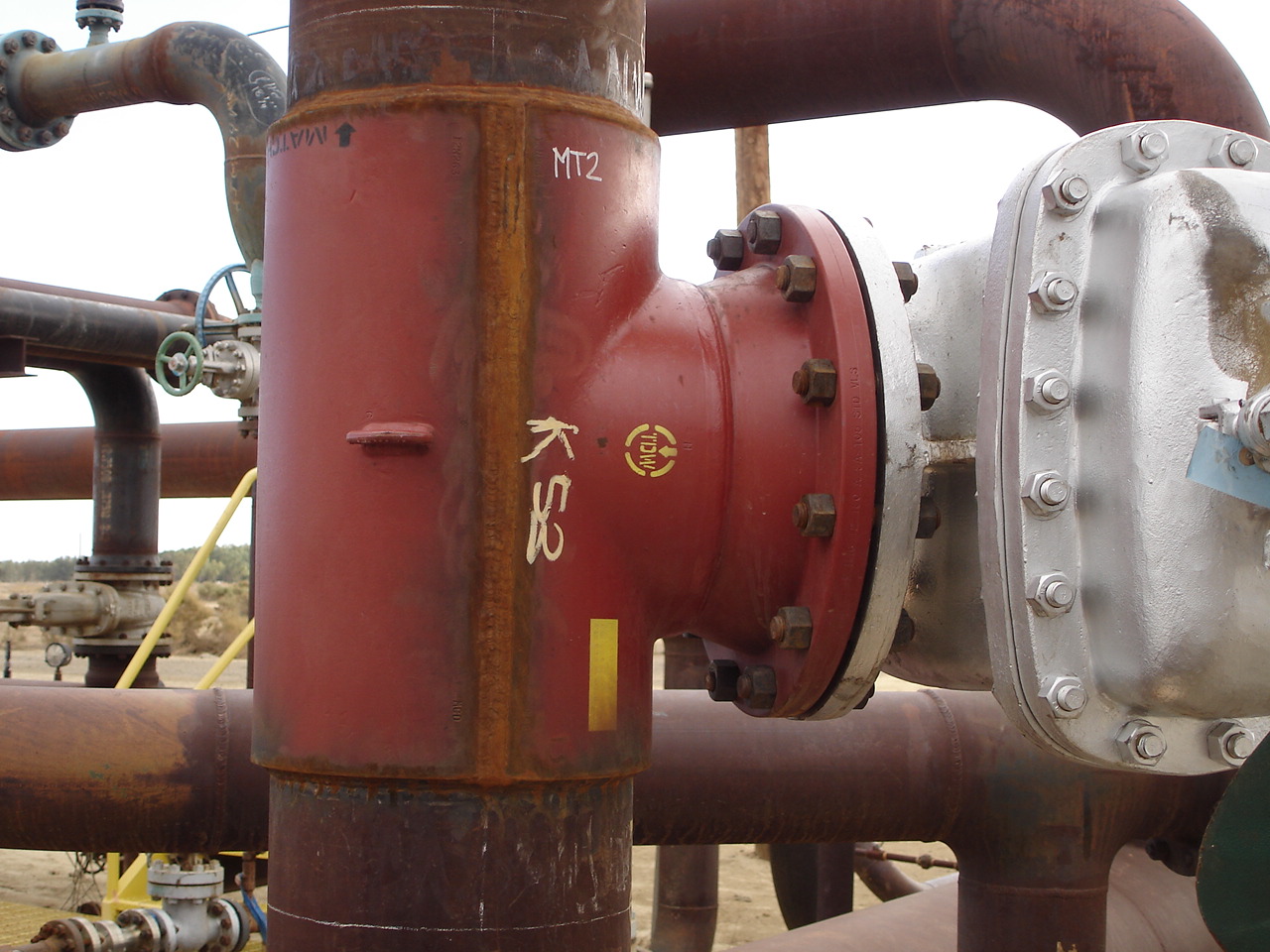
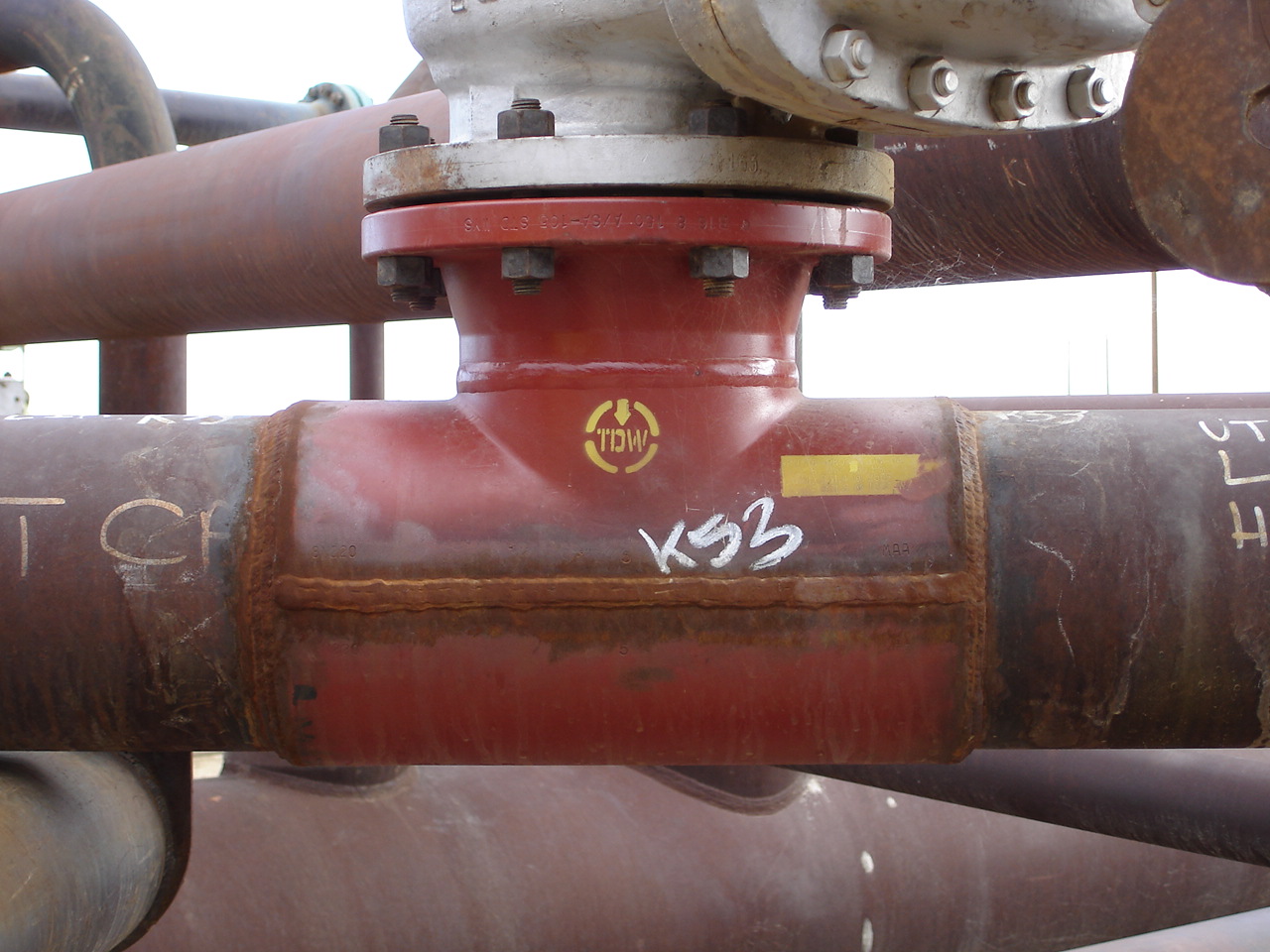
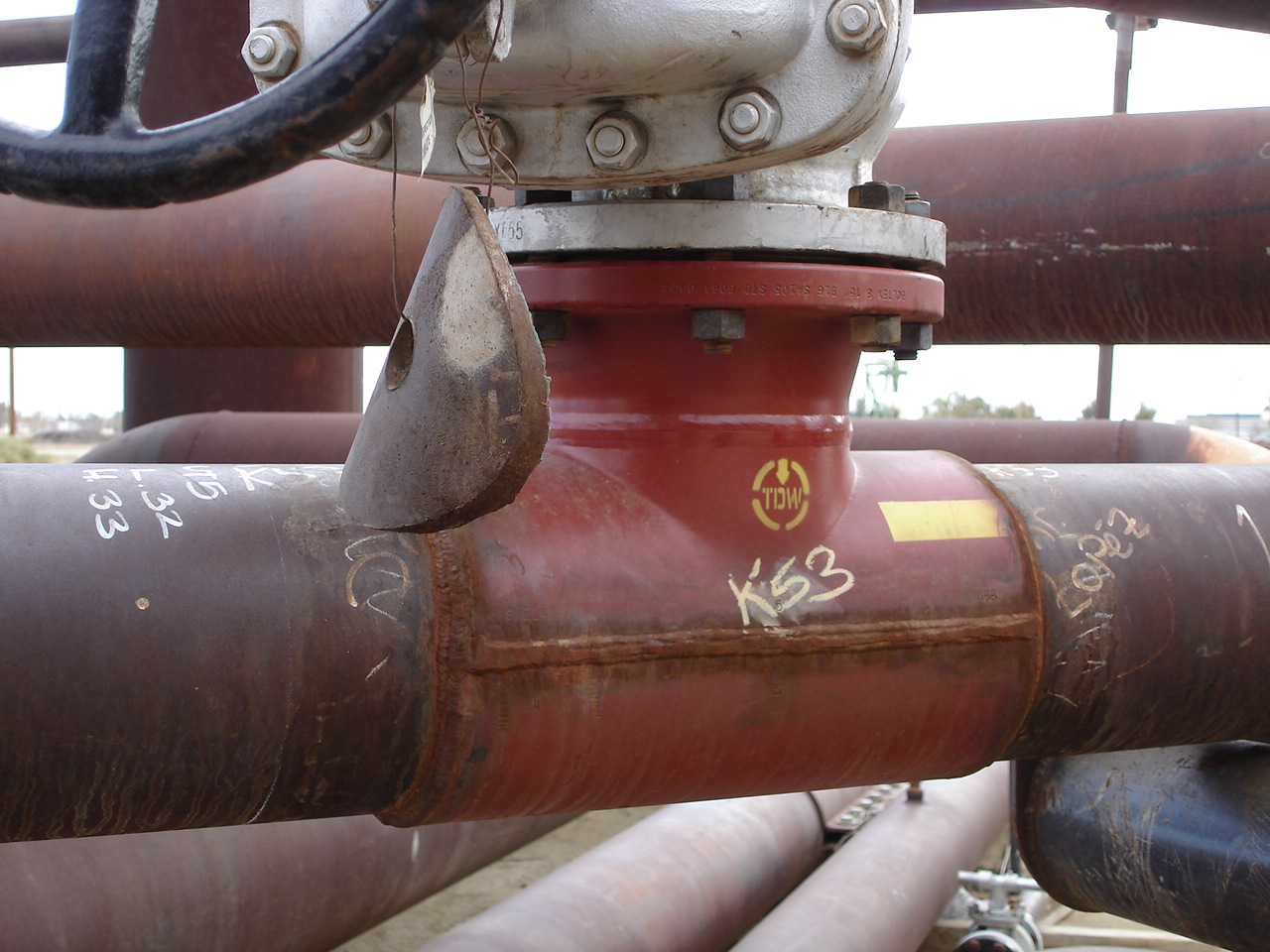
Stub-in - It is the term for a branch of pipe welded directly into the side of a main pipe run. It is not a fitting. This is the most common and least expensive method of welding a full size or reducing branch for pipe. A stub in can be reinforced. It is very important to verify the stub in connection against whatever applicable piping code you are designing to. For example, B31.3 allows for stub in connections only if calculations are performed to ensure the connection is strong enough to withstand whatever forces are expected on the weld.
Buttweld Fitting Cap Types
Dished Head Cap - These have a straight tangent with a rounded head.
Flat Closure Cap - These are flat plates normally cut for pipe at the site.
45 Elbow Long Radius - A 45 degree elbow "long radius" has a centerline curvature equal to 1-1/2 times the nominal pipe size (NPS) for 3/4 inch and larger sizes.
45 Elbow Long Radius Long Tangent - A 45 degree elbow "long radius, long tangent" is a long radius with the centerline curvature equal to 1-1/2 times the nominal pipe size (NPS) and a straight extension at both ends (long tangent) for 2 inch and larger sizes. Tangent elbows provide a straight length at the end to accept a Slip-on Flange. The tangent end for the flange is not beveled.
45 Elbow Three Radius - A 45 degree elbow "three radius" is a long radius elbow with the centerline curvature equal to 3 times the nominal pipe size (NPS).
90 Elbow Long Radius - A 90 degree elbow "long radius" has a centerline curvature equal to 1-1/2 times the nominal pipe size (NPS) for 3/4 inch and larger sizes.
90 Elbow Long Radius Long Tangent - A 90 degree elbow "long radius, long tangent" is a long radius with the centerline curvature equal to 1-1/2 times the nominal pipe size (NPS) and a straight extension at both ends (long tangent) for 2 inch and larger sizes. Tangent elbows provide a straight length at the end to accept a Slip-on Flange. The tangent end for the flange is not beveled.
90 Elbow Short Radius - A 90 degree elbow "short radius" has a centerline curvature equal to 1 times the nominal pipe size (NPS) for 1 inch and larger sizes.
90 Elbow Short Radius Long Tangent - A 90 degree elbow "short radius, long tangent" is a short radius with the centerline curvature equal to 1 times the nominal pipe size (NPS) and a straight extension at both ends (long tangent) for 8 inch and larger sizes. Tangent elbows provide a straight length at the end to accept a Slip-on Flange. The tangent end for the flange is not beveled.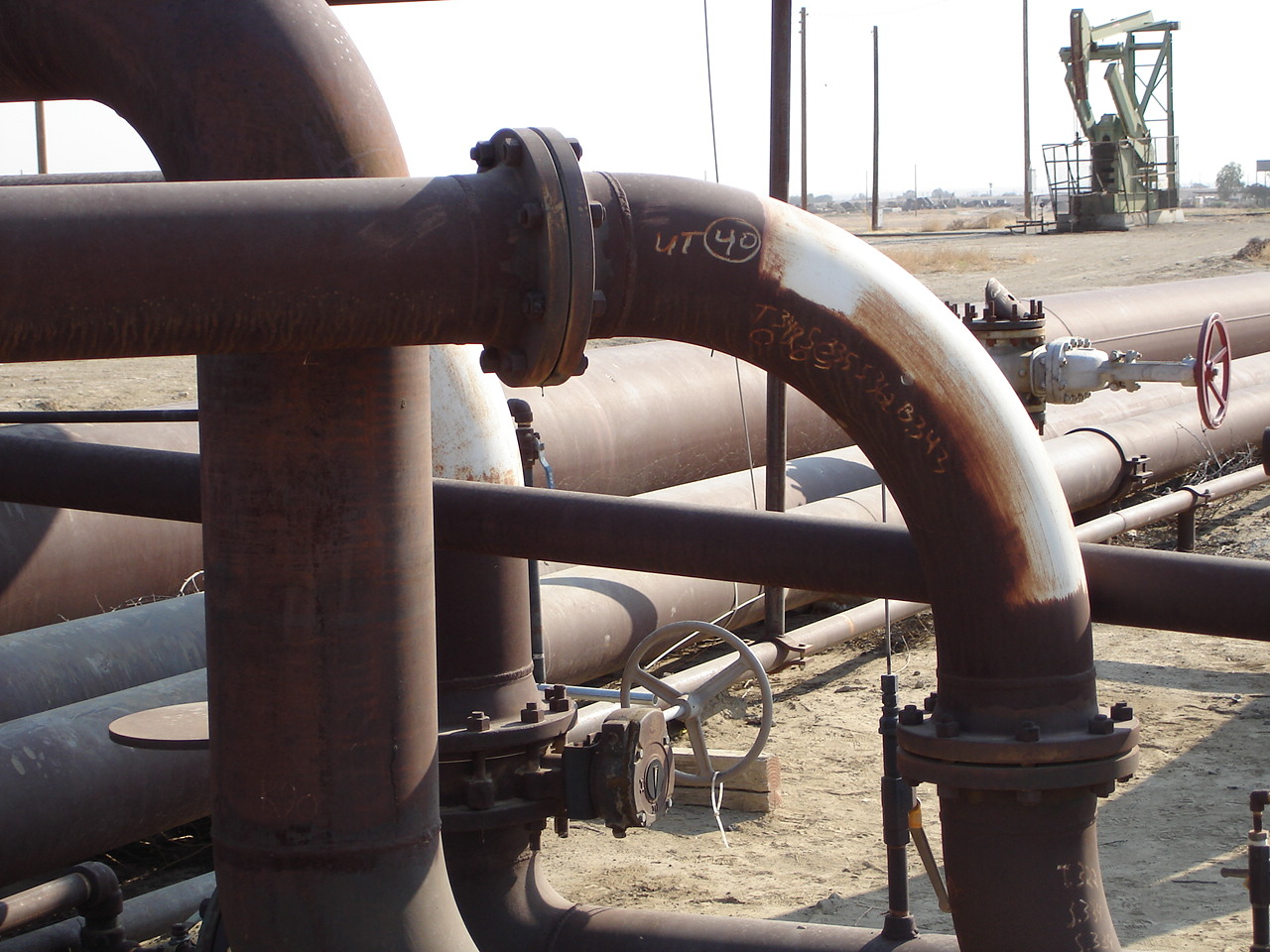 90 Elbow Three Radius - A 90 degree elbow "three radius" is a long radius with the centerline curvature equal to 3 times the nominal pipe size (NPS).
90 Elbow Three Radius - A 90 degree elbow "three radius" is a long radius with the centerline curvature equal to 3 times the nominal pipe size (NPS).
180 Return Long Radius - A 180 degree return "long radius" has a centerline curvature equal to 1-1/2 times the nominal pipe size (NPS) for 3/4 inch and larger sizes.
180 Return Short Radius - A 180 degree return "short radius" has a centerline curvature equal to 1 times the nominal pipe size (NPS) for 1 inch and larger sizes.
Mitered Elbow - A mitered elbow is fabricated from pipe and is not a fitting. A miter is used for larger pipes, where pressure drop is not important and cost is a factor. A 2 piece 90 degree miter has 4 to 6 times hydraulic resistance of the corresponding long radius elbow. A 3 piece, 90 degree miter has about double the resistance. The normal number of miter pieces used are 3, 4, or 5.
Bend - A bend is made from a straight piece of pipe. The most common bends are 3 or 5 times the nominal pipe size (NPS) radius.
Buttweld Fitting Reducer Types
Concentric Reducer - The concentric reducer centerline of the inlet and outlet is at the same level.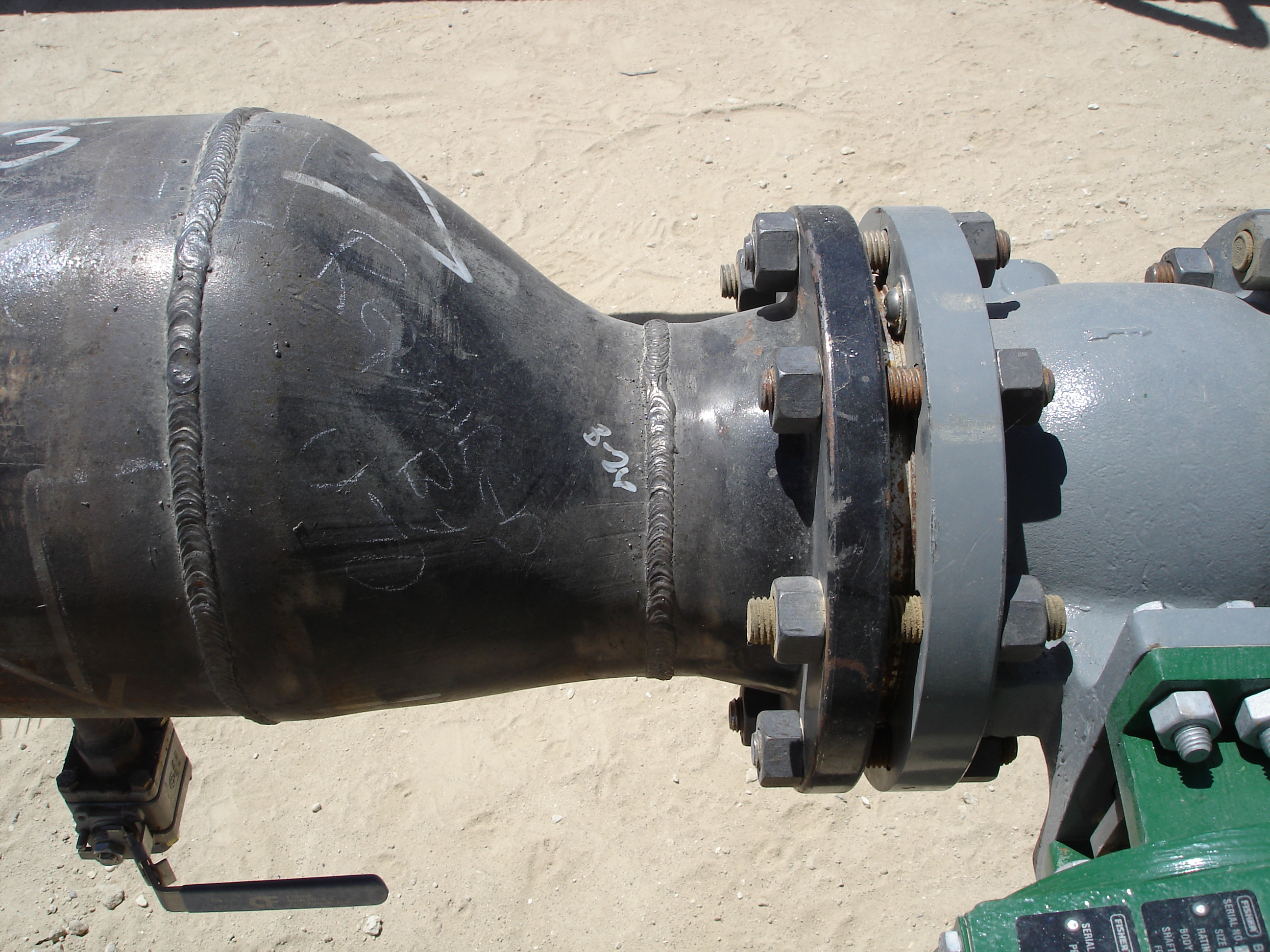 Eccentric Reducer - The eccentric reducer (abbreviated as offset is equals 1/2 times the larger ID minus the smaller ID. The eccentric reducer is used to keep either the top or bottom of the pipe level. It is used with the flat side up (flat on top FOT) or flat side down (flat on bottom FOB). In wet gas such as casing gas applications, an eccentric reducer should be used that is flat on bottom to prevent condensing liquids from pocketing. It is common practice to install eccentric reducers on a liquid line that might have a little gas in it with the flat side of the reducer is put on the top. That ensures that any bubbles that come along the top pass immediately through the pump and not accumulate. If they accumulate, they may collect and enter the pump in bulk causing it to intermittently cavitate.
Eccentric Reducer - The eccentric reducer (abbreviated as offset is equals 1/2 times the larger ID minus the smaller ID. The eccentric reducer is used to keep either the top or bottom of the pipe level. It is used with the flat side up (flat on top FOT) or flat side down (flat on bottom FOB). In wet gas such as casing gas applications, an eccentric reducer should be used that is flat on bottom to prevent condensing liquids from pocketing. It is common practice to install eccentric reducers on a liquid line that might have a little gas in it with the flat side of the reducer is put on the top. That ensures that any bubbles that come along the top pass immediately through the pump and not accumulate. If they accumulate, they may collect and enter the pump in bulk causing it to intermittently cavitate.
Swage - There are three types - concentric (CONC SWG), eccentric (ECC SWG) and ventury. A swage is used to connect buttwelded and screwed fittings/pipe to smaller or larger buttweld or screwed fittings/pipe.
Concentric swage - centerline of the inlet and outlet is at the same level.
Eccentric swage - is offset either on the top or bottom of the line level.
Venturi swage - creates a smooth flow
Buttweld Fitting Standards
- ASME Standards
- ASME B16.9 - Factory-Made Wrought Buttwelding Fittings
Buttweld Fitting Abbreviations
45 ELB LR - 45 elbow long radius
45 ELB LR LT - 45 elbow long radius long tangent
45 ELB 3R - 45 elbow three radius
90 ELB LR - 90 elbow long radius
90 ELB LR LT - 90 elbow long radius long tangent
90 ELB SR - 90 elbow short radius
90 ELB SR LT - 90 elbow short radius long tangent
90 ELB 3R - 90 elbow three radius
180 ELB LR - 180 elbow long radius
180 ELB SR - 180 elbow short radius
BW - butt weld or buttweld
BWF - butt weld fitting
CONC RED - concentric reducer
ECC RED - eccentric reducer
FOB - flat on bottom
FOT - flat on top
MIT ELB - mitered elbow
STR CR - straight cross
STR TEE - straight tee
RED CR - reducing cross
RED TEE - reducing tee
REINF SDL - reinforcing saddle
SDL - saddle

